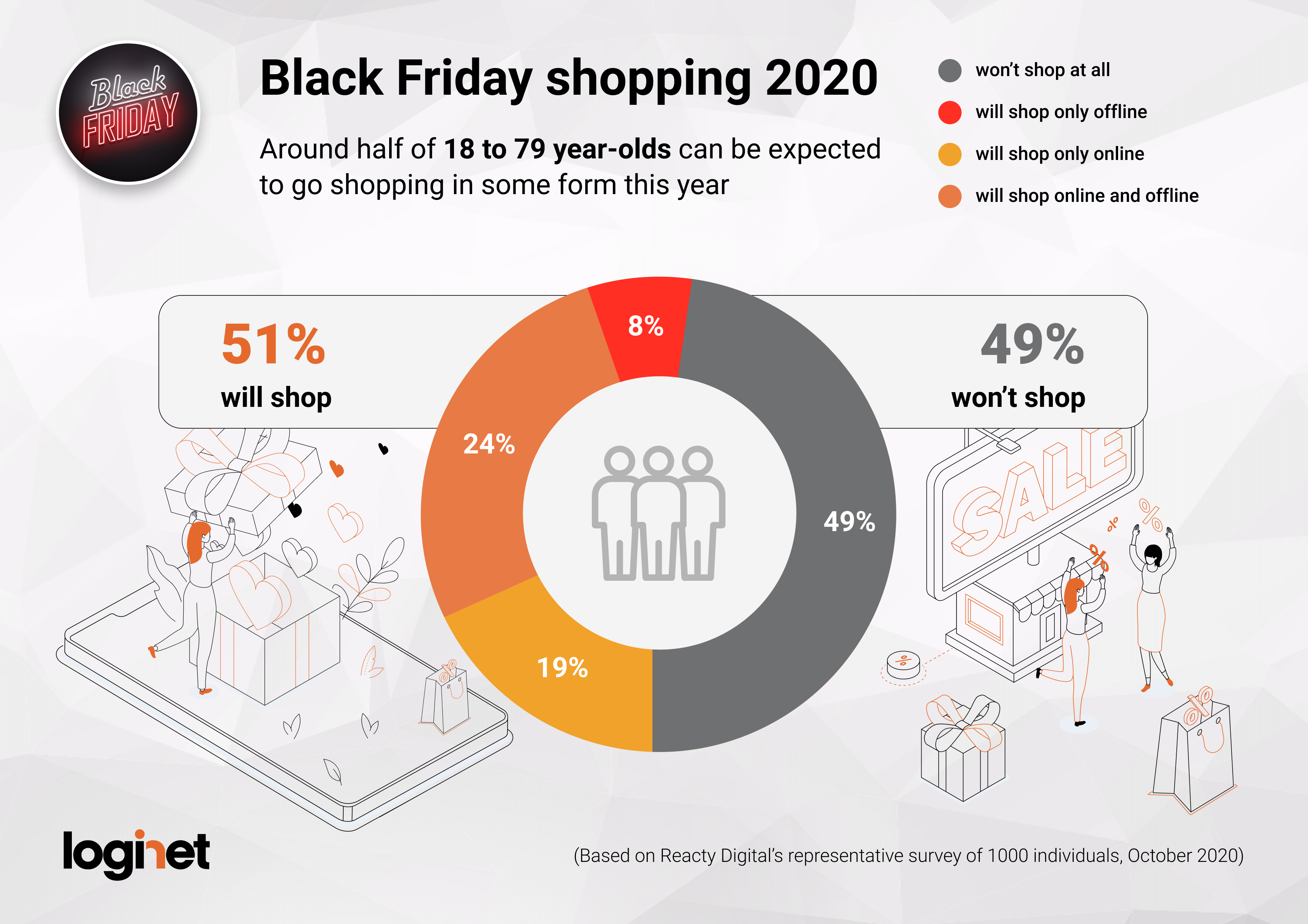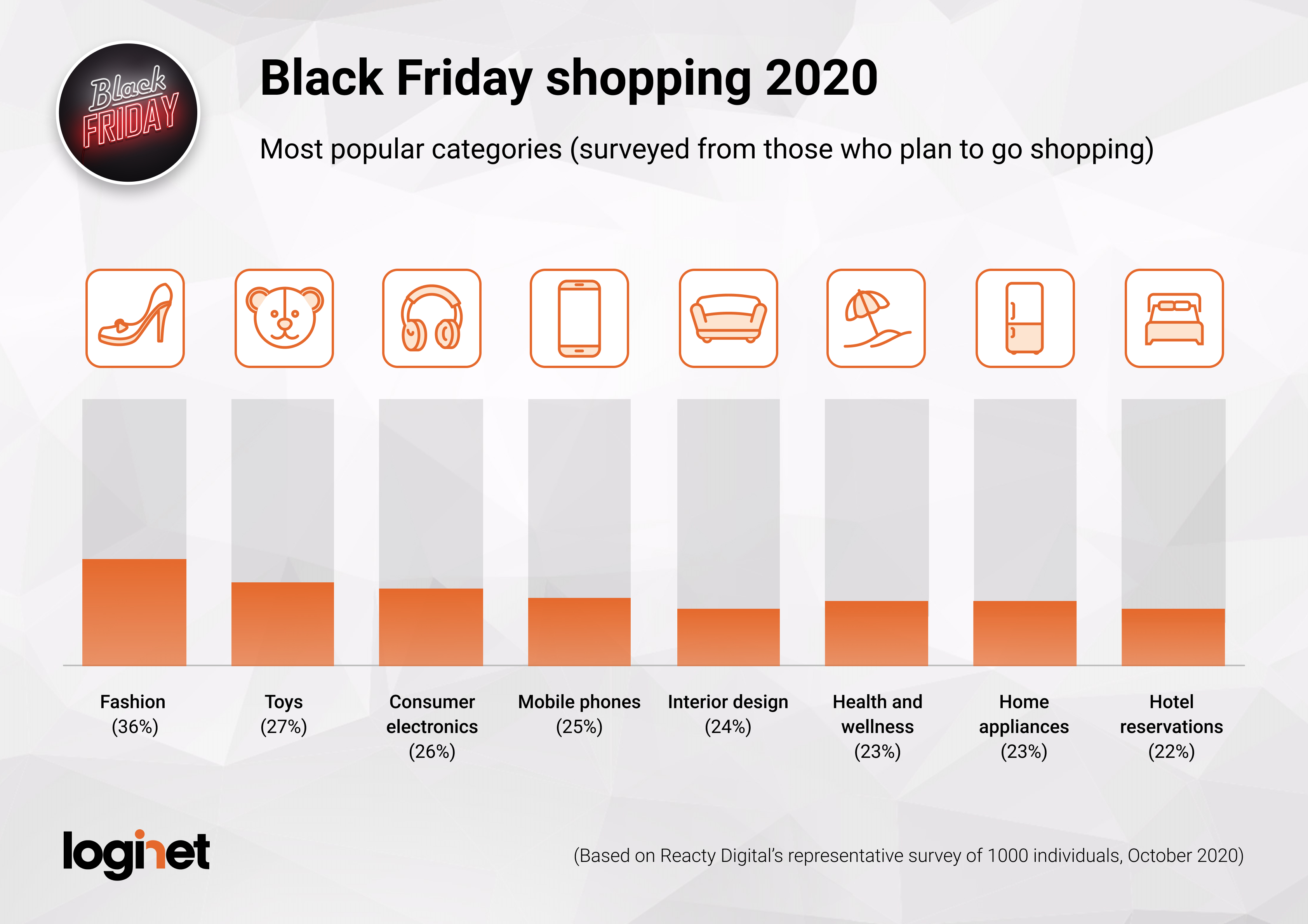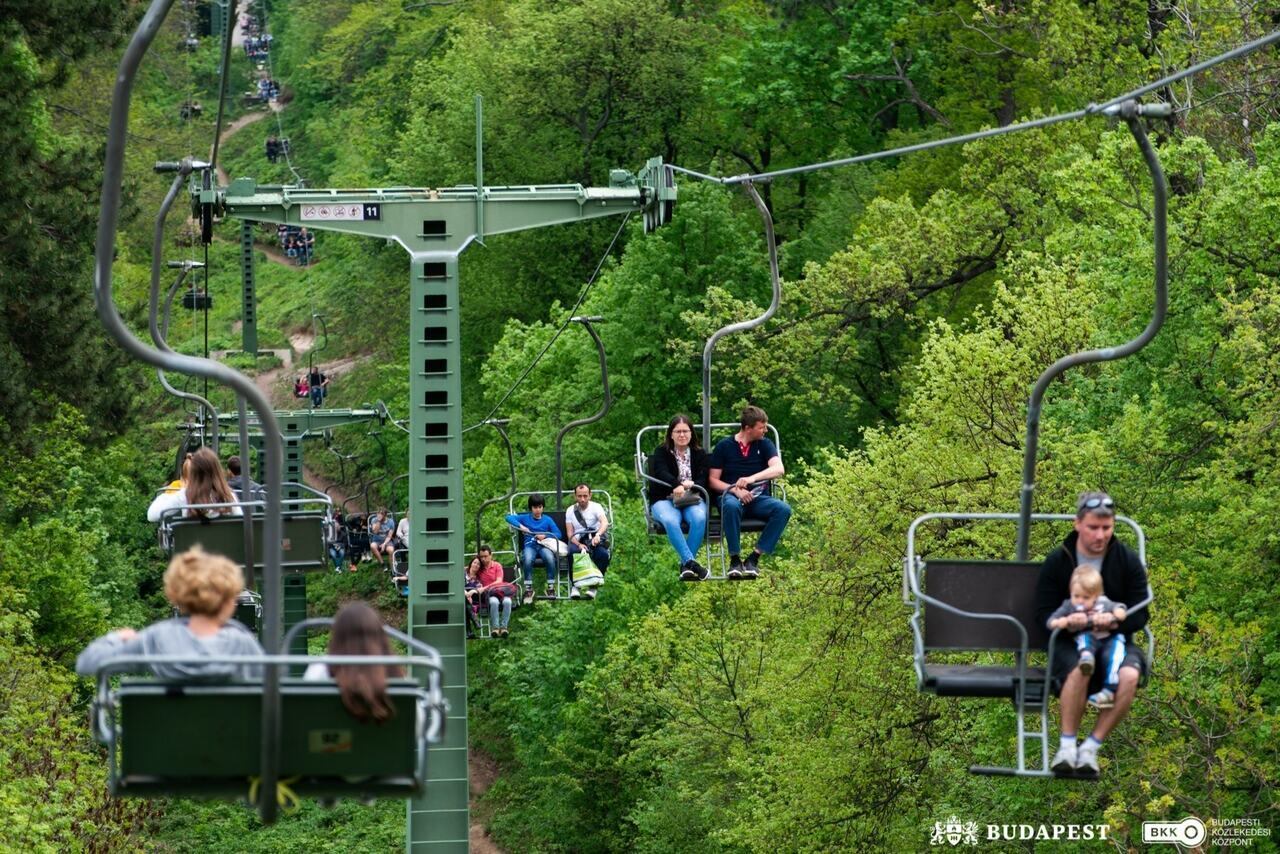Black Friday in Hungary: even Covid-19 can’t get in the way
As the 2020 holiday season fast approaches, so does the excitement surrounding Black Friday sales. While last year only one in every three people bought something off the shelves around Black Friday, this year – despite the uncertain economic conditions caused by COVID – half of the population plans on doing so. These shoppers are especially happy that they won’t miss out on discounts given these promotions last more than one day – determined LogiNet, ecommerce specialist software company, and Reacty Digital in their joint survey of 18 to 79 year-olds.
Online or in-store, as long as there’s a discount
There is practically no one in Hungary who hasn’t heard of Black Friday; however, while last year 66% of the population wasn’t interested in the sales and didn’t go shopping, this year the rate of those uninterested dropped to 49%. More than half of the survey participants plan to take advantage of Black Friday discounts either online or in-store. You’d assume that given the dangers posed by the coronavirus, those planning to shop would do so online – however, this may not be the case. Last year, 6% of participants decided on the in-store shopping experience – but this year that number may grow to 8% of shoppers who will wear masks and physically go off to stores.

The popularity of Black Friday persists online as well, even in the shadow of the coronavirus: one out of five of those surveyed will shop online while one out of four will shop both online and offline in the hunt for discounts in 2020.
A significant dividing factor between the two groups of shoppers – online and offline – is their tolerance of crowds. From the participants who prefer online, 62% are distinctly bothered by crowds; only half of in-store shoppers feel this way, as was determined by LogiNet and Reacty Digital’s study.
Wellness wrapped under the tree this year
It seems that, despite COVID, we will be spending quite freely in the heat of Black Friday shopping: altogether, shoppers plan to spend only HUF 2000 less than the previous two year’s averages. Discount-hunters count on spending around HUF 40000 this year, even in the face of these uncertain economic conditions.
The popularity of fashion items hasn’t changed (36%) but at the same time, the categories of toys (27%), consumer electronics (26%), mobile phones (25%), interior design (24%), home appliances (23%), and hotel reservations (22%) will also prevalently find their way into shopping carts. Not surprisingly, products related to health and wellness have grown the most in popularity: compared to 2018, 9% more, or, 23% overall of those surveyed stated they would purchase a wellness-related present this holiday season. This is probably strongly connected to the coronavirus pandemic and the consequently increasing health-conscious decisions.

Black Friday isn’t just one day
For years now, the growing trend has emerged for Black Friday sales online and offline to last not just that one day, but rather for days, weeks – even until Christmas. Half of shoppers (49%) are especially pleased to be able to avoid the “everything-in-one-day” stresses. Continuous promotions for longer periods of time are also necessary because not all shoppers know exactly when stores announce their Black Friday sales.
More conscious buyers
In order to find the best deals, price-comparison websites have long been essential, popular tools for shoppers. According to Reacty Digital and LogiNet’s e-commerce study, prior to clicking “buy”, three fourths of online shoppers first compare product prices and check other sites as well.
Though some are enticed by the size of the discount, others favor their preferred brands that typically guarantee the quality of a purchase. This has become a well-established, evident trend by 2020: shoppers want to buy from familiar sources. Only one in every five participants identified the discount amount as the main purchasing priority.
Businesses prepare yourselves!
Given the increased online traffic this year, not every purchase will end in a gleeful smile: delays and stock shortages can be anticipated. One third of shoppers noted limited product volume last year. From the customers’ perspective however, it is encouraging that from 2018 to 2019 the number of late package arrivals did not change (around one fifth of participants) despite the increasing online traffic and deliveries.
In 2019, one in every seven people (14%) was disappointed by a Black Friday purchase.
Aside from late deliveries and stock shortages, shoppers identified a lack of price savings; oftentimes, a purchase may have seemed to be a great deal, but in reality, it could be found for the same or even cheaper price somewhere else.
Discounts deemed too big may also cause businesses to slipup: Reacty Digital’s similar study from last year found that three fourths of shoppers found discounts above 50% to be too good to be true. This year though, half of those surveyed don’t consider the season’s sales good enough. In other words, a product half-off is suspicious, but a small discount isn’t attractive enough—it’s a fact worth keeping in mind this year for businesses!
Source: LogiNet & Reacty Digital Press Release
please make a donation here
Hot news
Tourist-favourite Budapest chairlift to finally open this weekend! – PRICES
Trump: Hungarians fight to save Western civilisation
Great news: World’s first retail chain opens new store at Budapest Airport
Hungarian government hopes for a conservative turn in Europe and the US
Trump: Can’t wait to work with Viktor Orbán again as President! – VIDEO
Speakers at CPAC Hungary want to fight against ‘woke ideology, illegal immigration, anti-Semitism’





1 Comment
Black Friday is a massive con trick, especially from web sites like Amazon but also here in Hungary. The same goods have been sold at the same or less relatively shortly before Black Friday. Some retailer put the price up a couple of weeks earlier and then put the price ‘down’ for BF. These are big names doing this, companies with shops in all the big shopping centres in Budapest (and beyond). My advice? Wait until AFTER BF and AFTER Christmas. That’s when you get a real discount.